Posted on 12/19/2025
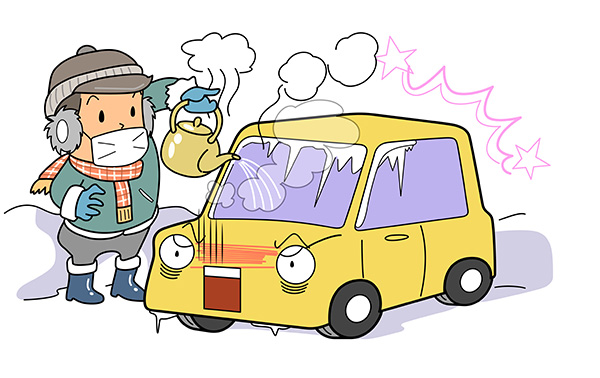
You stumble out on a freezing morning, see a sheet of ice on the glass, and the kettle is already hot in the kitchen. Pouring hot water over the windshield sounds like a clever shortcut. It feels satisfying for a few seconds, right up until that same shortcut can crack the glass you are trying to save time with. Why Pouring Hot Water on Glass Seems Like a Quick Fix When you are in a rush, hot water looks like the fastest answer. It melts ice instantly and feels more efficient than waiting on the defroster or scraping. That “instant clear” effect is why so many videos and tips keep circling online every winter. What those clips rarely show is what happens to the glass after you walk away. Windshields are strong, but they are not designed for sudden, extreme temperature swings. The damage usually builds quietly, then shows up as chips or spider cracks later in the season. What Sudden Temperature Change Does to Your Windshield Your windsh ... read more
Posted on 11/28/2025
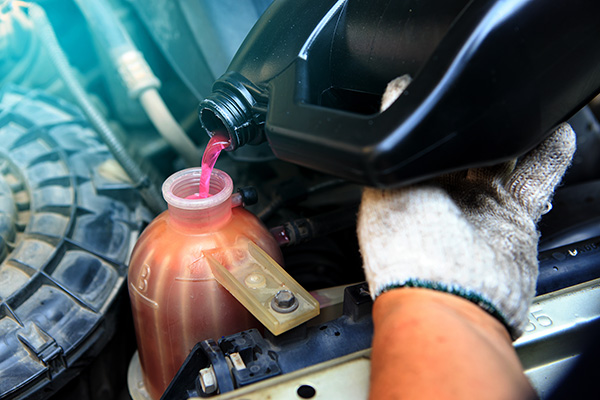
An empty coolant reservoir means the cooling system is losing fluid or not pulling it back into the radiator as it should. Sometimes the cause is obvious, like a wet hose. Other times, the leak hides under engine covers or the coolant is burning inside the engine, where you cannot see it. Here is how to read the clues, what to check first, and when to schedule a proper pressure test. Why a Coolant Reservoir Drops to Empty The reservoir works with the radiator to capture expansion when the engine is hot and return coolant as it cools. If the hose between the reservoir and radiator is cracked, the system ingests air instead of coolant on cooldown, and the bottle stays low. A weak radiator cap can do the same by failing to hold pressure and vacuum. In our bay, we often see both together after a season of heat cycles. Common Leak Spots You Can Miss Small leaks evaporate before they hit the ground. Look at the seams of plastic radiators for a pale whit ... read more
Posted on 10/31/2025

Driving through the hills of Colorado can be a great experience unless your car starts to feel like it’s working a little too hard. If your vehicle suddenly struggles on inclines or feels unresponsive when you press the gas, it's a sign that something isn’t right. The problem may be minor, but when you're climbing hills in higher elevations, even a small issue can become much more noticeable. Elevation Impacts Engine Power More Than You Might Expect Higher altitudes mean thinner air. That reduced air density makes it harder for your engine to produce the same power it does at sea level. Internal combustion engines rely on a precise mix of fuel and oxygen. At higher elevations, there’s simply less oxygen available, so your car’s computer must adjust the air-fuel ratio to compensate. For naturally aspirated engines (ones without a turbocharger) this can lead to a noticeable drop in performance. Even if your vehicle is in perfect shape ... read more
Posted on 9/26/2025
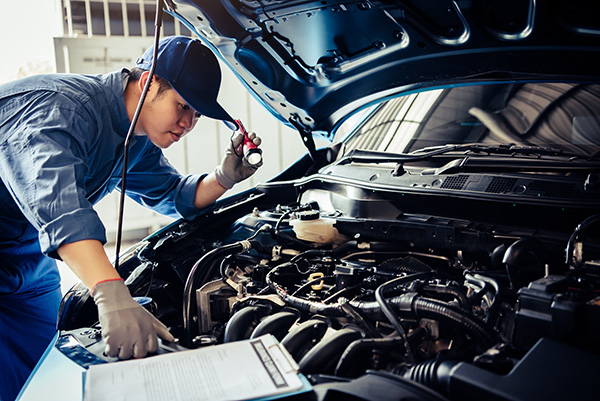
When temperatures begin to fall, vehicles tend to show their hidden weaknesses. Parts that seemed fine a month ago might suddenly struggle once the first cold snap hits. Freezing weather impacts your battery, fluids, tires, belts, and more. If something in your car is already worn or marginal, winter often brings it to light. A pre-winter inspection gives you a chance to catch those issues before you're stuck on the side of the road or dealing with a no-start on a frigid morning. Batteries Work Harder When It’s Cold As it gets colder, your car’s battery becomes less efficient. The chemical reaction inside slows down, which means the battery produces less power. At the same time, starting your engine in the cold requires more energy than usual. This combination can be a problem, especially if your battery is a few years old. A technician can test the battery’s charge, check for corrosion around the terminals, and let you know if it’s time ... read more
Posted on 8/29/2025

One of the main reasons drivers choose Subaru vehicles is the standard all-wheel-drive system. It provides excellent traction, stability, and control, especially in challenging environments like Colorado’s mountain passes and rugged backroads. Whether you’re navigating dirt trails, snow-packed streets, or steep inclines, your Subaru’s AWD system is designed to give you confidence behind the wheel. But like any mechanical system, it requires care and maintenance to perform at its best. How Subaru’s AWD System Works Unlike vehicles that only send power to two wheels, Subaru’s symmetrical all-wheel-drive system distributes power evenly between the front and rear. This balanced setup helps maintain grip and control even when road conditions change suddenly. It continuously monitors wheel speed and adjusts torque to the wheels with the most traction, preventing slippage on loose gravel, wet pavement, or icy patches. Signs Your AWD Sy ... read more
Posted on 7/29/2025
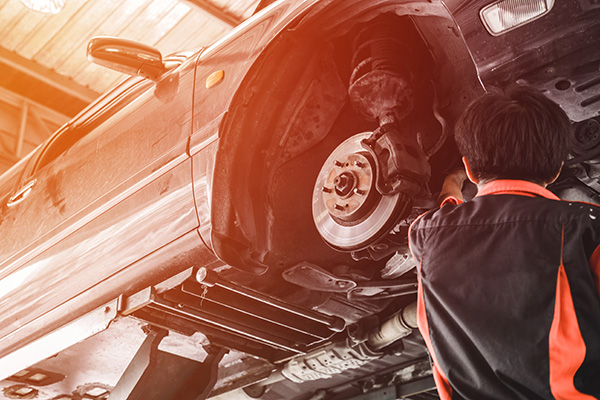
Brake failure is a situation every driver hopes never to face, yet it demands clear thinking and fast, informed action. When you press the brake pedal and nothing happens, panic is a natural response. But knowing what to do in the moment and how to prevent it from happening in the first place can make all the difference between a close call and a serious accident. Though today’s braking systems are highly dependable, no vehicle is immune to mechanical failure. Understanding what causes brakes to fail, taking the necessary steps if it happens to you, and reducing your risk will help you stay safer on the road. How Your Brakes Work Your car’s braking system relies on hydraulic pressure to function. When you press the brake pedal, that force travels through a network of brake fluid-filled lines to calipers or wheel cylinders. These, in turn, press brake pads or shoes against rotors or drums, generating the friction needed to slow or stop your vehicle. If a ... read more
Posted on 6/27/2025
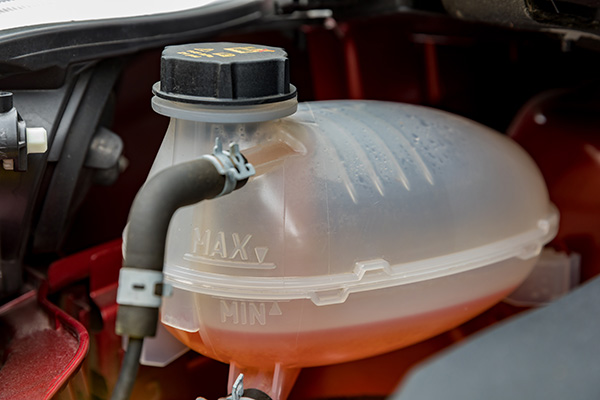
It’s a warning light that many drivers ignore for far too long. The low coolant indicator may not seem urgent compared to more alarming symbols, such as the check engine light, but it can lead to serious problems if left unaddressed. Coolant, also known as antifreeze, is essential for regulating your engine’s temperature. Without enough of it, the engine is at risk of overheating, and the consequences can be expensive. Ignoring the low coolant light is like running a marathon without water. Your engine needs constant cooling to perform under stress, and when the system is short on fluid, it can only go so long before something fails. What Coolant Does for Your Engine Coolant circulates through the engine and radiator to absorb heat, keeping temperatures within a safe operating range. It also protects the system from freezing in cold temperatures and helps prevent rust and corrosion inside the engine. When your coolant level drops too low, the system can ... read more
Posted on 5/30/2025

Driving through Colorado’s rugged terrain and steep inclines demands more from your vehicle than the average city commute. If you own a 4x4, you already have a vehicle designed for tough conditions—but that doesn’t mean it’s always ready for the mountains. Whether you’re headed into the Rockies for work or adventure, making sure your 4x4 is properly maintained can make the difference between a smooth trip and an unexpected breakdown. Before hitting the trail or navigating mountain passes, here’s what you should check to ensure your 4x4 can handle the elevation, terrain, and unpredictable weather. Tires and Tread Depth One of the most critical areas to inspect before a mountain drive is your tires. Uneven wear, low tread, or incorrect inflation can lead to poor traction on loose gravel, snow, or muddy surfaces. Mountain roads can go from dry to slick in minutes, so it’s essential to have tires that are both durable and capabl ... read more
Posted on 4/28/2025
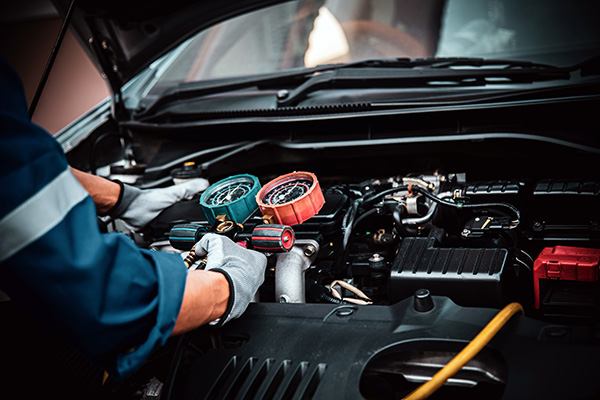
It’s a common complaint during warmer months—your car’s A/C feels cold and powerful while driving, but once you stop at a red light or get stuck in traffic, the airflow doesn’t feel as cool. If your air conditioning can’t keep up at idle, it usually means the system isn’t performing as efficiently as it should. Before it gets worse, it helps to know what might be behind the drop in cooling and what steps you can take to fix it. How Your Car's AC System Works Your vehicle’s air conditioning relies on a compressor, which is usually powered by a belt connected to the engine. As the engine turns, the compressor circulates refrigerant through the system, removing heat from the cabin and sending cool air through the vents. But when your car is idling, engine speed decreases, and so does the power available to the A/C system. That drop in performance can ... read more
Posted on 3/28/2025
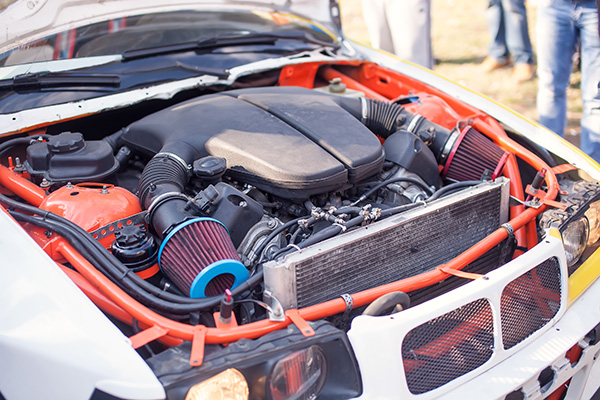
That high-pitched whining sound coming from your car when you step on the gas is not something to ignore. Even if your car still drives normally, a whining noise under acceleration usually means something mechanical isn’t quite right—and it could get worse if left unchecked. Sometimes it’s a minor issue like a worn belt. Other times, it’s something more serious involving your transmission or power steering. The key is to catch it early before a strange noise turns into a major repair. Possible Causes of Whining Noises When Accelerating There isn’t a one-size-fits-all explanation. Whining sounds can come from a variety of systems in your vehicle, depending on where the noise is coming from and when it occurs. Here are some of the most common culprits: 1. Worn Serpentine or Drive Belts Belts are responsible for powering multiple components under the hood, including the alternator, power steering pump, and air conditionin ... read more